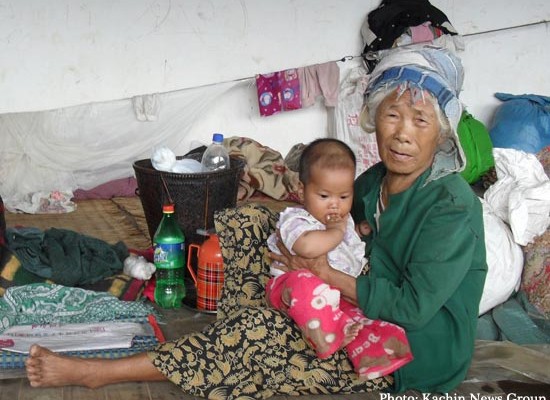The US NGO Human Rights Watch (HRW) released a report on Tuesday criticizing China for forcibly sending hundreds of Kachin refugees back to Kachin and northern Shan state where fighting is taking place.
 Human Rights Watch also said that many refugees who remain in the southern part of China's Yunnan region have poor access to food water and shelter and remain at grave risk of being forcibly returned to a war zone.
Human Rights Watch also said that many refugees who remain in the southern part of China's Yunnan region have poor access to food water and shelter and remain at grave risk of being forcibly returned to a war zone.
In an introduction to the report Sophie Richardson HRW's China director described the grim situation the refugees face. “Many Kachin refugees have already endured terrible abuses and war in Burma, only to settle into a life of dire struggle in Yunnan,” she said.
“Until it is safe for the Kachin to return home, the Chinese government has a responsibility to ensure their safety and well-being,” she added.
Though the majority of the estimated 10,000 refugees who have fled to China from Kachin and northern Shan states are ethnic Kachin, those displaced also include Shan, Sino-Burmese and Palaung ethnic minorities. Members of the Burman ethnic majority have also been affected by the conflict and forced to move.
Chinese towns and cities located along the Burmese border for many years have already had large populations of undocumented migrants from Burma. Many displaced Kachin refugees have taken shelter among these migrant communities while others have set up temporary shelters in farming and forested areas located just inside the Sino-Burma border.
Woman's rights activists warn that many young female refugees who have taken refuge in China are at risk of being forced into the border areas booming sex industry or could fall victim to being trafficked into a forced marriage with a Chinese man. Due to China's notorious one child policy there is a serious shortage of brides in China and many Chinese men resort to using a broker to buy a spouse from northern Burma. Often the brides are unwilling participants in the process but have little chance of escape.



